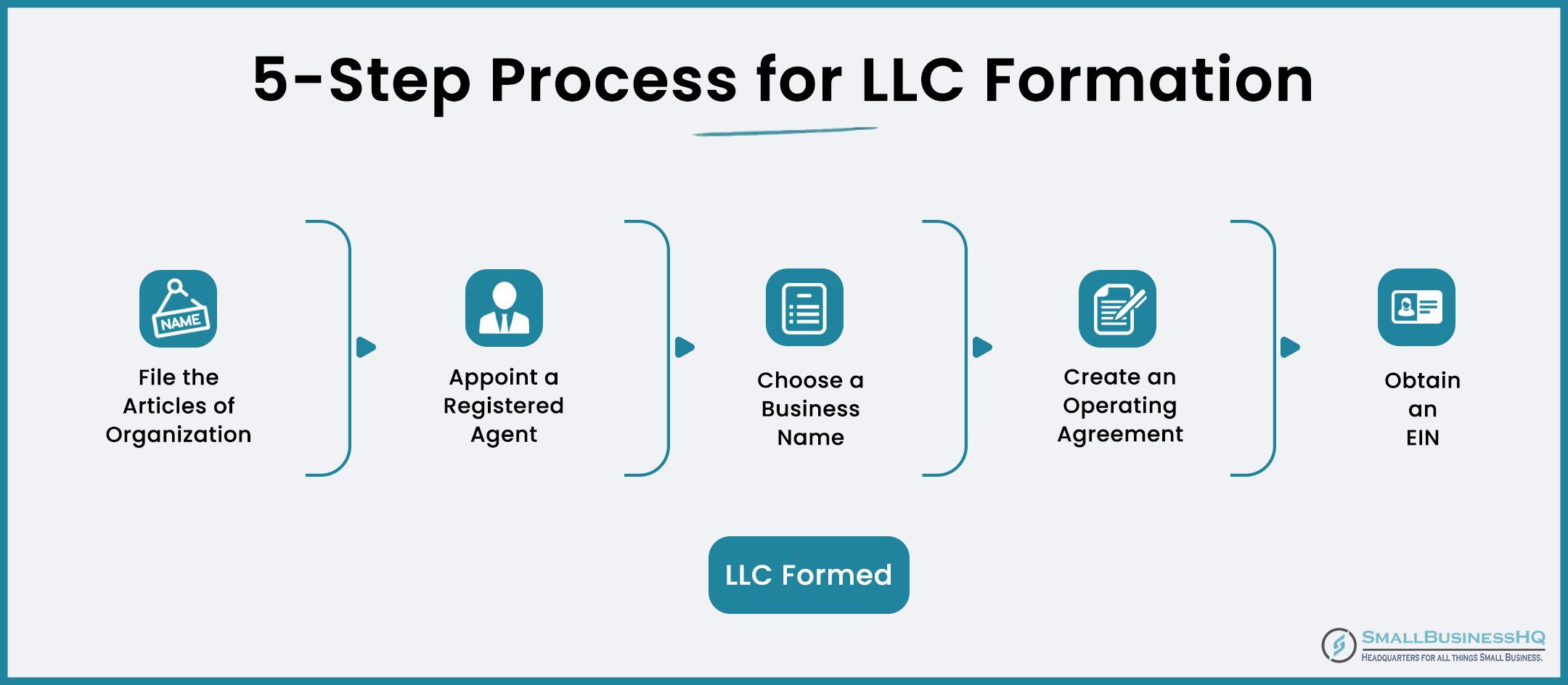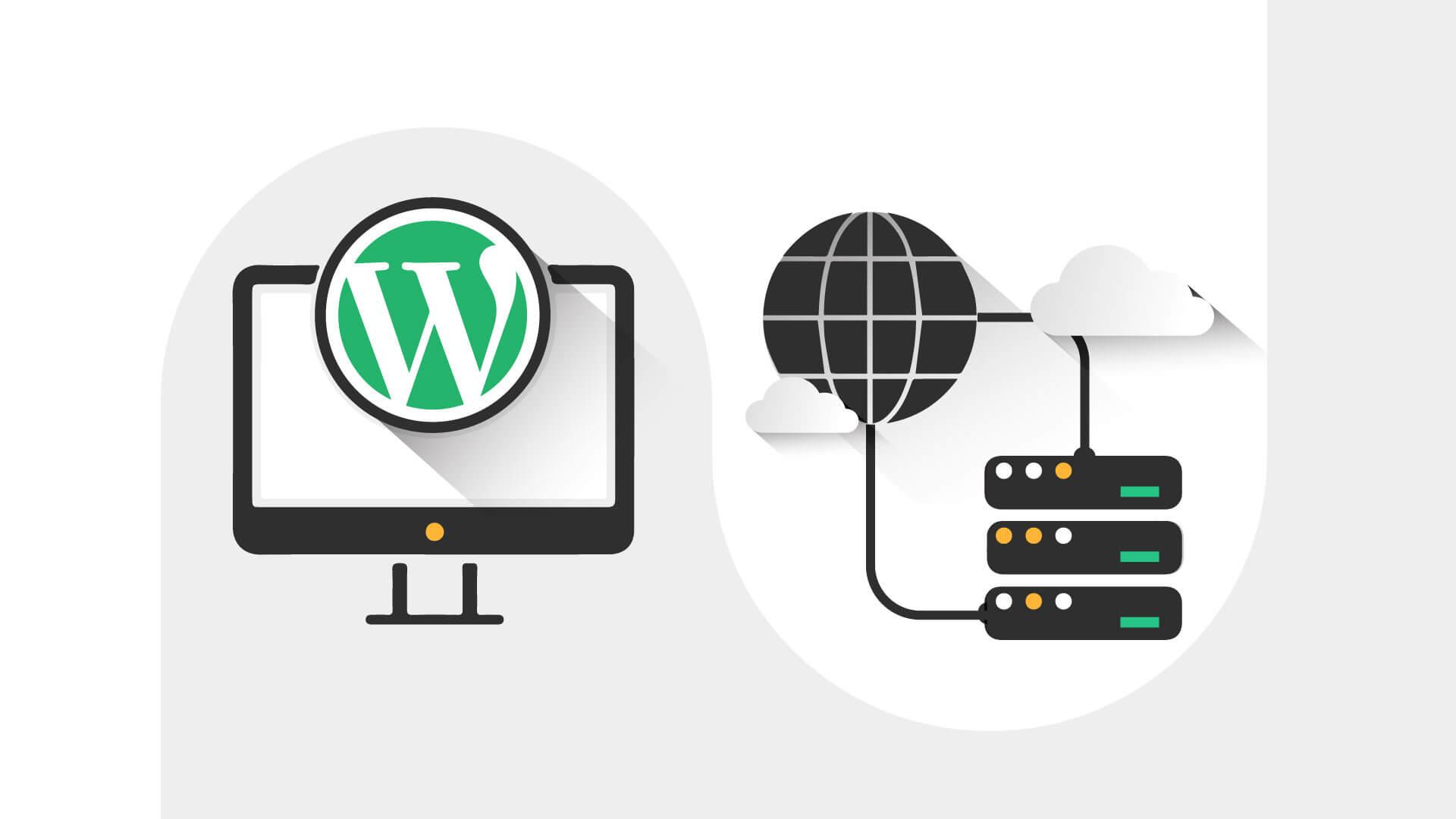
Are you ready to launch your dream website on WordPress but feeling overwhelmed by the multitude of hosting options out there? You’re not alone! With so many choices, it can be tricky to figure out which hosting service will best meet your needs. Whether you’re a budding blogger, a small business owner, or a seasoned developer, finding the right hosting provider is crucial for your site’s performance, security, and overall success. In this article, we’ll break down the top hosting options for WordPress—tailored to fit various budgets and requirements—so you can confidently choose the perfect home for your online presence. Let’s dive in and discover the best hosting solutions that will set you up for success, no matter what your goals are!
Understanding the Importance of Choosing the Right Hosting for WordPress
When it comes to building a WordPress site, one of the most crucial decisions you’ll make is selecting the right hosting provider. The hosting environment you choose not only affects your website’s performance but also plays a significant role in its security, scalability, and overall management.
Imagine investing time and effort into designing a stunning website, only to have it load slowly or face frequent downtimes due to inadequate hosting. This can lead to frustrated visitors, lost sales, and damage to your brand’s reputation. Therefore, understanding what makes a hosting provider suitable for WordPress is key to ensuring a smooth online experience.
Here are some essential factors to consider:
- Performance: Fast loading speeds are essential for user experience and SEO. Look for hosts that offer solid state drives (SSDs) and content delivery networks (CDNs).
- Security: WordPress sites are often targeted by hackers. Choose a host that provides robust security features, including daily backups, malware scanning, and SSL certificates.
- Scalability: As your website grows, so will your traffic. Opt for a hosting provider that allows you to easily upgrade your plan to accommodate increased visitors.
- Customer Support: Reliable customer service is vital, especially if you encounter issues. Look for hosts with 24/7 support and knowledgeable staff.
Additionally, consider the type of hosting that fits your needs:
- Shared Hosting: Ideal for beginners or small sites with low traffic. It’s cost-effective but may lead to slower speeds if resources are shared.
- Managed WordPress Hosting: Tailored specifically for WordPress, providing optimized performance, automatic updates, and enhanced security measures.
- VPS Hosting: A step up from shared hosting, giving you more control and resources. It’s great for growing websites needing more power.
- Dedicated Hosting: Best for large businesses or websites with significant traffic. You have complete control over a server, but it comes at a higher cost.
To further illustrate the differences, here’s a quick comparison of popular hosting types:
| Hosting Type | Cost | Performance | Best For |
|---|---|---|---|
| Shared Hosting | Low | Moderate | Small blogs or personal sites |
| Managed WordPress Hosting | Medium | High | WordPress-specific sites |
| VPS Hosting | Medium to High | High | Growing websites |
| Dedicated Hosting | High | Very High | Large businesses |
Ultimately, the right hosting provider will set the foundation for your WordPress site’s success. Take the time to evaluate your specific needs and future goals, and don’t hesitate to reach out to support teams for clarification on any hosting concerns. The choice you make now can lead to significant benefits down the line, ensuring your website runs smoothly and efficiently.
Key Factors to Consider When Selecting WordPress Hosting
Selecting the right hosting for your WordPress site can significantly impact your website’s performance, security, and overall user experience. Here are some key factors to consider that will guide you in making the best choice:
- Performance and Speed: The speed of your website is crucial. A reliable hosting provider should offer optimized servers and technology to ensure fast load times. Look for options that provide SSD storage and Content Delivery Network (CDN) integration to enhance speed.
- Uptime Guarantee: Downtime can lead to lost traffic and revenue. Aim for a host that offers at least a 99.9% uptime guarantee. Read reviews and check their history to ensure they deliver on this promise.
- Customer Support: When technical issues arise, having access to knowledgeable customer support can save you a lot of headaches. Opt for a hosting provider that offers 24/7 support through various channels such as live chat, email, and phone.
- Security Features: Security should be a top priority. Look for hosting services that provide features like SSL certificates, regular backups, malware scanning, and firewalls to protect your site from threats.
- Scalability: As your website grows, you’ll need a hosting solution that can scale with you. Choose a provider that offers various plans and the flexibility to upgrade resources as needed without a hassle.
- User-Friendly Control Panel: A good control panel makes managing your website easier. Look for hosting that provides a simple interface, such as cPanel or a proprietary dashboard, allowing you to easily manage settings and files.
- Pricing and Value: While you don’t want to compromise on quality, it’s essential to consider your budget. Compare the pricing structures and what’s included in each plan—some hosts offer attractive introductory rates but may increase significantly upon renewal.
| Hosting Provider | Performance | Uptime Guarantee | Starting Price |
|---|---|---|---|
| Provider A | Fast SSD | 99.9% | $3.99/month |
| Provider B | Optimized | 99.9% | $4.95/month |
| Provider C | Turbo Speed | 99.99% | $5.99/month |
By keeping these factors in mind, you can make a more informed decision that aligns with your needs and ensures your WordPress site runs smoothly and efficiently. Remember, investing in quality hosting is an investment in your website’s success.

Comparing Shared Hosting vs. Managed WordPress Hosting
When it comes to choosing a hosting solution for your WordPress site, two popular options often come up: shared hosting and managed WordPress hosting. Each has its own set of advantages and considerations, making it essential to understand the key differences that could impact your website’s performance and management.
Shared Hosting is typically the most budget-friendly option. With this type of hosting, your website shares server resources with multiple other sites. This can lead to lower costs, but it also means that your site’s performance may be affected during peak times when other sites consume excessive resources. Key features include:
- Cost-effective plans, often starting as low as $3-$10 per month.
- Easy setup with a user-friendly control panel.
- Limited customer support, as you may have to rely on community forums.
- Less optimized for WordPress, potentially requiring you to manage updates and security yourself.
On the other hand, Managed WordPress Hosting is designed specifically for WordPress websites. This means that the hosting environment is optimized for WordPress performance and security. While it comes at a higher price point, it offers significant benefits:
- Automatic updates for WordPress core and plugins, ensuring you’re always using the latest versions.
- Enhanced security features, including firewalls and malware scanning.
- Dedicated customer support from experts familiar with WordPress.
- Improved performance with caching solutions and optimized server configurations.
| Feature | Shared Hosting | Managed WordPress Hosting |
|---|---|---|
| Cost | Low | Moderate to High |
| Performance | Variable | Consistent |
| Support | Basic | Expert |
| Security | Basic | Advanced |
| Updates | Manual | Automatic |
Ultimately, the choice between shared hosting and managed WordPress hosting boils down to your specific needs and budget. If you’re launching a simple blog or a personal site with low traffic, shared hosting might suffice. However, if you’re running a business site or anticipate growth, investing in managed WordPress hosting can save you time and headaches in the long run. Think of it as an insurance policy for your website’s success.
Remember, the right hosting solution can be a game-changer for your WordPress site, impacting everything from site speed to security. Consider your goals and how much time you want to dedicate to managing your hosting environment as you make your decision.
Exploring the Benefits of Managed Hosting for WordPress
When it comes to running a WordPress site, the choice of hosting can make or break your online experience. Managed hosting stands out as a tailored solution specifically designed for WordPress, providing a plethora of benefits that can enhance performance, security, and overall user satisfaction.
Performance Optimization: One of the primary advantages of managed hosting is the optimization of performance. With servers configured specifically for WordPress, you can expect faster load times and better reliability. Many managed hosting providers utilize advanced caching techniques and Content Delivery Networks (CDNs) to ensure that your website runs smoothly, even during traffic spikes.
Enhanced Security: Security is a top concern for any website owner. Managed hosting often includes proactive security measures such as automatic updates, malware scanning, and firewalls. This means you can rest easy knowing that your site is protected against common vulnerabilities and attacks, allowing you to focus on content creation rather than security concerns.
Expert Support: Managed hosting services typically offer 24/7 support from WordPress experts. Whether you encounter a technical issue, need advice on best practices, or require assistance with updates, having a dedicated team available can save you time and stress. This level of support is especially beneficial for those who may not be technically savvy.
| Feature | Benefits |
|---|---|
| Automatic Backups | Ensures your data is safe with regular backup schedules. |
| Staging Environments | Test changes in a separate environment before going live. |
| Scalability | Easily handle traffic growth without downtime. |
| Integrated Tools | Access to tools like SEO optimizers and performance monitors. |
SEO Advantages: Managed hosting is also beneficial from an SEO perspective. With faster load times, enhanced security, and better uptime, your site is more likely to rank higher in search engine results. Many managed hosts also provide built-in SEO tools that help you optimize your content effectively.
Peace of Mind: Perhaps one of the most underrated benefits of managed hosting is the peace of mind it provides. Knowing that your site is in the hands of professionals allows you to concentrate on what you do best—creating content and engaging with your audience. When everything runs smoothly in the background, you can put your energy into growth and innovation.
choosing managed hosting for your WordPress site can lead to significant advantages that enhance both performance and user experience. Investing in this type of hosting is not just about having your site online; it’s about ensuring it operates at its best while you focus on what truly matters.

Top Affordable Hosting Options for Budget-Conscious Users
Finding a reliable hosting provider that doesn’t break the bank can be a daunting task, especially for those just starting their WordPress journey. Fortunately, there are several budget-friendly options that offer excellent features without compromising on performance. Here’s a look at some top choices that fit the bill.
Bluehost is often recommended for beginners, and for good reason. They offer plans starting at just $2.95/month, which includes a free domain for the first year, SSL certificate, and 24/7 customer support. Their user-friendly interface makes it easy to set up your WordPress site, even if you have no technical knowledge.
SiteGround is another popular choice among budget-conscious users. While their initial pricing starts at $3.99/month, the real value comes from their exceptional customer support and robust performance. They offer daily backups, managed WordPress features, and a free CDN, ensuring your site runs smoothly and efficiently.
For those who are really pinching pennies, Hostinger offers some of the most affordable plans on the market, with prices as low as $1.99/month. Their hosting comes with a free website builder, one-click WordPress installation, and 24/7 support. It’s an excellent option for users who want to create a basic website without the extra frills.
If you’re looking for a slightly more robust option, consider A2 Hosting. They have plans starting at $2.99/month and offer Turbo Servers for increased speed and performance. Their emphasis on speed makes them a great choice for those who prioritize website load times, especially in today’s fast-paced digital world.
| Hosting Provider | Starting Price | Free Features | Customer Support |
|---|---|---|---|
| Bluehost | $2.95/month | Free Domain, SSL | 24/7 Support |
| SiteGround | $3.99/month | Daily Backups, Free CDN | 24/7 Support |
| Hostinger | $1.99/month | Free Website Builder | 24/7 Support |
| A2 Hosting | $2.99/month | Free SSL, Turbo Option | 24/7 Support |
Each of these hosting providers has its unique strengths, so it ultimately depends on what features are most important to you. If you prioritize customer support, SiteGround might be your best bet. However, if you just want the lowest price, Hostinger could be the perfect fit. Take the time to evaluate what you need, and you’ll find an option that suits your budget without sacrificing quality.

Best High-Performance Hosting Solutions for Growing Websites
When it comes to hosting your WordPress site, performance is key. As your website grows, so do the demands placed on your hosting solution. Choosing the right service can mean the difference between a smooth user experience and frustrated visitors. Here are some of the top high-performance hosting options that cater to the needs of expanding websites.
Managed WordPress Hosting
Managed WordPress hosting offers a tailored experience, ensuring your site is optimized for speed and security. This service is ideal for those who prefer to focus on creating content rather than managing technical aspects. Some of the best options include:
- Kinsta: Known for its lightning-fast load times and premium customer support.
- WP Engine: Offers robust security features and a user-friendly interface.
- Flywheel: Perfect for freelancers and agencies, with tools that simplify collaboration.
Cloud Hosting
Cloud hosting provides unparalleled scalability, making it a fantastic choice for rapidly growing sites. This solution distributes your website across multiple servers, which enhances performance and reliability. Top contenders include:
- SiteGround: Offers excellent uptime and proactive support.
- DigitalOcean: Great for developers needing customizable setups with competitive pricing.
- Vultr: Provides high-performance SSD cloud servers for fast loading times.
VPS Hosting
If you’re looking for more control, Virtual Private Servers (VPS) might be the way to go. VPS hosting provides dedicated resources, ensuring your site performs well even during traffic spikes. Some reliable providers are:
- InMotion Hosting: Offers free backups and top-notch customer service.
- Bluehost: Integrates seamlessly with WordPress and provides a straightforward interface.
- HostGator: Known for its affordability and scalable plans.
Dedicated Hosting
For businesses experiencing significant growth or high traffic, dedicated hosting is the ultimate solution. With dedicated resources, you gain complete control over your server, which can enhance performance. Here are some noteworthy providers:
- A2 Hosting: Offers turbo servers for enhanced speed.
- Liquid Web: Known for its exceptional managed services and support.
- Hostinger: Combines affordability with powerful performance features.
Comparison Table
| Hosting Type | Best For | Key Features |
|---|---|---|
| Managed WordPress | Content Creators | Optimized Performance, Security |
| Cloud Hosting | Scalable Needs | Reliability, Flexibility |
| VPS Hosting | Control Seekers | Dedicated Resources, Customization |
| Dedicated Hosting | High Traffic Sites | Full Control, Maximum Performance |
Ultimately, the best hosting solution will depend on your specific needs and budget. By carefully assessing your requirements, you can choose a hosting provider that not only meets your current demands but also scales with your growing website. Invest wisely in your hosting to ensure your site remains fast, secure, and reliable as you expand.

Choosing the Right Hosting for E-Commerce WordPress Sites
When it comes to launching an e-commerce site on WordPress, choosing the right hosting provider is critical. The performance, security, and scalability of your site heavily rely on your hosting choice. Here are some key factors to consider that will help you make an informed decision:
- Speed: Your customers expect a fast loading time. Choose a hosting provider that offers solid-state drives (SSDs) and has data centers close to your target audience to minimize latency.
- Uptime: Look for a host that guarantees at least 99.9% uptime. This ensures that your site remains accessible to customers, preventing loss of sales.
- Security: E-commerce sites are prime targets for cyber threats. Opt for a host that provides SSL certificates, firewalls, and regular security updates to protect your sensitive data.
- Scalability: As your e-commerce store grows, your hosting needs may change. Choose a provider that allows for easy upgrades to accommodate increased traffic and resource demands.
- Customer Support: Reliable, 24/7 support can be a lifesaver when issues arise. Look for hosts that offer multiple support channels, such as live chat, phone, and email.
Some top hosting options tailored for e-commerce include:
| Hosting Provider | Features | Best For |
|---|---|---|
| SiteGround | Managed WordPress, daily backups, top-notch support | Small to medium-sized businesses |
| Bluehost | Free domain, SSL, 24/7 support | Beginners and startups |
| WP Engine | Managed hosting, high performance, and security | High-traffic sites |
| A2 Hosting | Turbo servers, anytime money-back guarantee | Speed-focused users |
Additionally, consider the following:
- Payment Processing Options: Ensure that your hosting plan supports popular payment gateways like PayPal, Stripe, and others.
- Integration with Plugins: Your host should seamlessly integrate with essential e-commerce plugins like WooCommerce to provide a smooth setup process.
- Backup Solutions: Regular backups are crucial. Look for hosts that offer automated daily backups, so you can quickly restore your site if something goes wrong.
the best hosting choice for your e-commerce WordPress site will depend on your unique business needs. Take the time to evaluate possible options, read reviews, and perhaps even test customer support responsiveness before making your decision. Your mission is to provide a seamless shopping experience for your customers, so choose wisely!
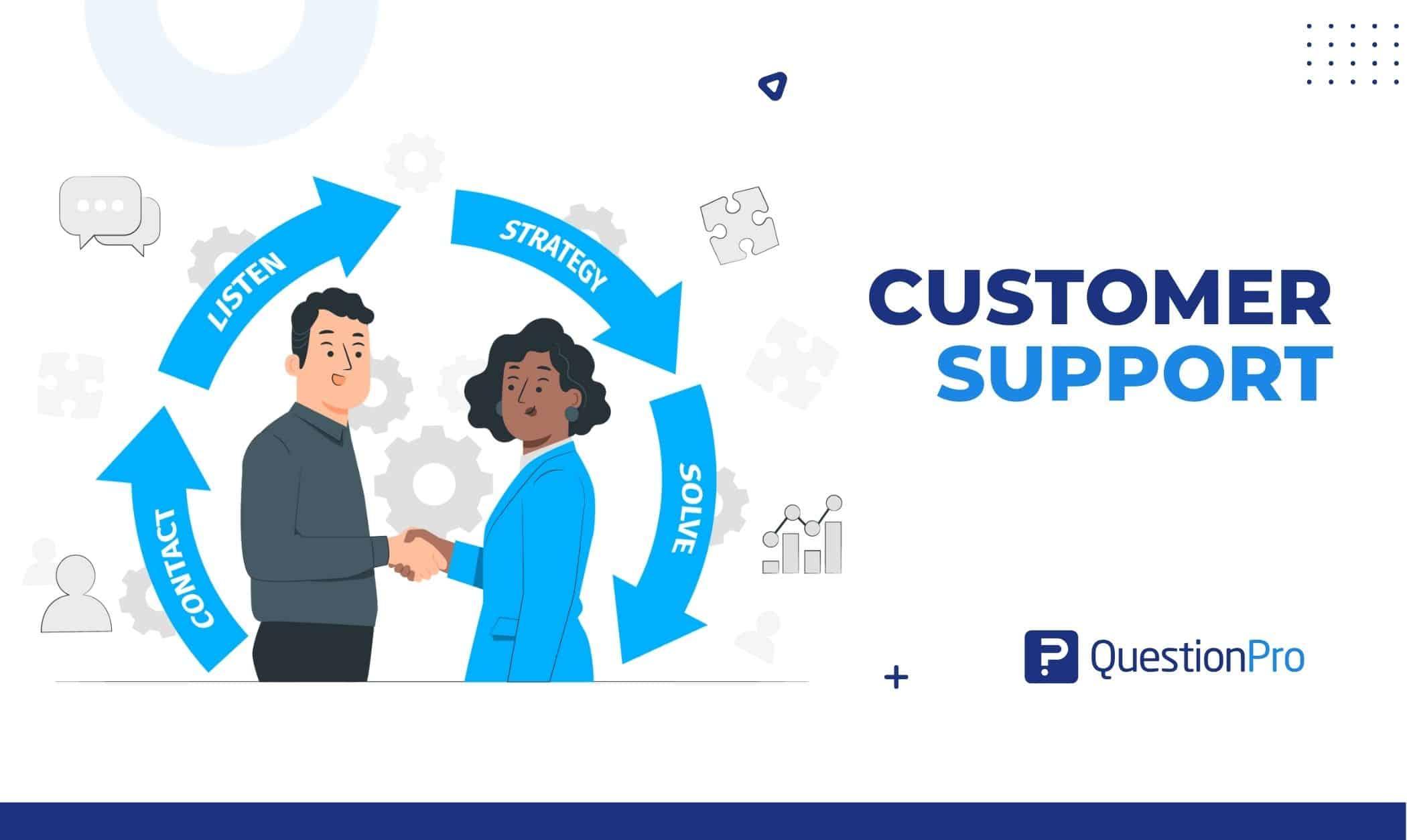
The Importance of Customer Support in WordPress Hosting
When it comes to selecting the right hosting for your WordPress site, one critical factor often gets overlooked: customer support. A robust support system can mean the difference between a seamless online experience and a frustrating one. Here’s why prioritizing customer support in your hosting provider is essential.
First and foremost, technical issues can arise at any time, and having a responsive support team can save you hours of downtime. When your website is facing problems—be it a plugin conflict, server downtime, or security threats—you need a team that can jump in quickly. Here’s what to look for:
- 24/7 Availability: Websites don’t sleep, and neither should your support team.
- Multiple Channels: Choose a provider that offers support through live chat, phone, and email.
- Expertise: The support staff should be knowledgeable about WordPress and common issues that arise.
Great customer support goes beyond just fixing problems; it can also help you optimize your site. Many hosting providers offer resources and advice that can enhance your website’s performance. Consider this:
- Site Migrations: If you ever need to switch hosts, a knowledgeable support team can make the migration process smooth.
- Performance Tips: They can provide insights on caching, CDN setup, and other optimizations.
- Security Guidance: Helpful advice on securing your site can prevent future headaches.
Furthermore, the speed of support is a crucial element. In the fast-paced digital world, delays can lead to lost revenue and trust. A hosting provider that prides itself on rapid response times is invaluable. Here’s a quick comparison of how different hosting types can vary in support speed:
| Hosting Type | Average Response Time | Support Quality |
|---|---|---|
| Shared Hosting | 1-2 hours | Basic |
| VPS Hosting | 30-60 minutes | Intermediate |
| Managed WordPress Hosting | Instant – 15 minutes | Expert |
Lastly, don’t underestimate the value of customer reviews regarding support experiences. Many users share their stories online, providing insights into how a hosting company handles issues. This can be a goldmine for potential customers. Look for:
- Response Time: How quickly do they resolve issues?
- Friendliness: Are the support agents approachable and helpful?
- Resolution Rate: Do they solve problems effectively?
while the features and performance of a hosting provider are undoubtedly important, the quality of customer support should not be an afterthought. It’s the safety net that ensures your website runs smoothly, allowing you to focus on creating content and growing your business. Remember, when choosing a hosting provider, look for a partner that will be there for you, every step of the way.

How Security Features Can Impact Your Hosting Choice
When it comes to choosing a hosting provider for your WordPress site, security features can make all the difference. A vulnerable website can expose both your data and that of your visitors, leading to unwelcome consequences. Therefore, understanding how these security features can influence your hosting choice is crucial for keeping your online presence safe.
First and foremost, SSL certificates are essential. They encrypt the data exchanged between your website and its visitors, ensuring that sensitive information remains private. Most reputable hosting services now offer free SSL certificates, which can significantly boost your site’s credibility and ranking on search engines.
Another vital feature to look for is DDoS protection. Distributed Denial of Service (DDoS) attacks can incapacitate your website by overwhelming it with traffic. Choose a hosting provider that offers robust DDoS mitigation solutions, which can filter out malicious traffic and keep your site running smoothly.
Don’t underestimate the importance of firewalls. A web application firewall (WAF) can protect your site from common threats like SQL injection and cross-site scripting (XSS). These firewalls act as a barrier, shielding your website from harmful traffic while allowing legitimate users access.
Regular backups are another key aspect of security. Your hosting provider should offer automated backup solutions that allow you to restore your site effortlessly in case of a breach or data loss. This feature not only provides peace of mind but also ensures your data is never truly lost.
Let’s not forget about malware scanning and removal. The best hosting providers offer tools that continuously monitor your site for vulnerabilities and malicious software. Some even provide automated cleanup services, allowing you to focus on what matters most—growing your business.
| Security Feature | Importance | Recommended Providers |
|---|---|---|
| SSL Certificate | Data encryption | SiteGround, Bluehost |
| DDoS Protection | Prevent downtime | WP Engine, Kinsta |
| Web Application Firewall | Shield against attacks | Cloudflare, Sucuri |
| Automated Backups | Data recovery | DreamHost, A2 Hosting |
| Malware Scanning | Identify threats | GoDaddy, SiteLock |
consider the level of customer support available. A provider that offers 24/7 support can be a lifesaver, especially when security issues arise. Look for hosting companies that have a dedicated security team to assist you in case of emergencies.
investing time in understanding the security features offered by hosting providers will not only protect your WordPress site but also enhance your overall user experience. Your website’s security is a foundation that allows you to build trust with your audience, so choose wisely.

Scalability: Preparing Your Hosting for Future Growth
When selecting a hosting solution for your WordPress site, it’s crucial to consider scalability, especially if you anticipate significant growth in your traffic or content. Scalability refers to the ability of your hosting environment to accommodate increasing demands without disrupting service. Choosing a hosting provider that can easily scale with your needs will save you time, money, and potential headaches down the line.
Here are some key factors to consider when evaluating scalability:
- Resource Allocation: Ensure your hosting plan allows for easy upgrades of resources such as CPU, RAM, and storage. Look for providers offering flexible plans that can be adjusted as your site grows.
- Traffic Management: Choose a hosting service that can handle surge traffic. Features like load balancing and Content Delivery Networks (CDNs) are essential for maintaining performance during high traffic periods.
- Cloud Hosting: Opting for cloud hosting can be a game changer for scalability. With resources spread across multiple servers, you can easily scale up or down based on real-time needs.
- Backup and Redundancy: A good hosting provider should offer automated backups and redundancy features. This ensures your data remains safe as you scale, allowing for quick recovery in case of issues.
Another aspect of scalability is the choice between managed and unmanaged hosting. Managed hosting services typically offer more support and scalability options, making them ideal for businesses aiming for rapid growth. Unmanaged hosting, on the other hand, may require more technical expertise to scale effectively.
To give you a clearer understanding of how different hosting options stack up concerning scalability, check out the comparison table below:
| Hosting Type | Scalability | Ideal For |
|---|---|---|
| Shared Hosting | Limited | Small blogs or startups |
| VPS Hosting | Moderate | Growing websites |
| Managed WordPress Hosting | Flexible | Businesses and eCommerce |
| Cloud Hosting | Highly Scalable | Large enterprises and high-traffic sites |
Don’t forget to consider the technical support provided by the hosting company. As you scale, having a responsive support team can make all the difference when you encounter issues or need to make adjustments to your hosting environment. Look for providers that offer 24/7 support and have a good reputation for customer service.
Lastly, anticipate your site’s growth trajectory. If you predict a rapid increase in visitors due to seasonal events or marketing campaigns, choose a hosting plan that can handle unexpected spikes in traffic easily. Your hosting provider should allow for quick upgrades without extensive downtime.
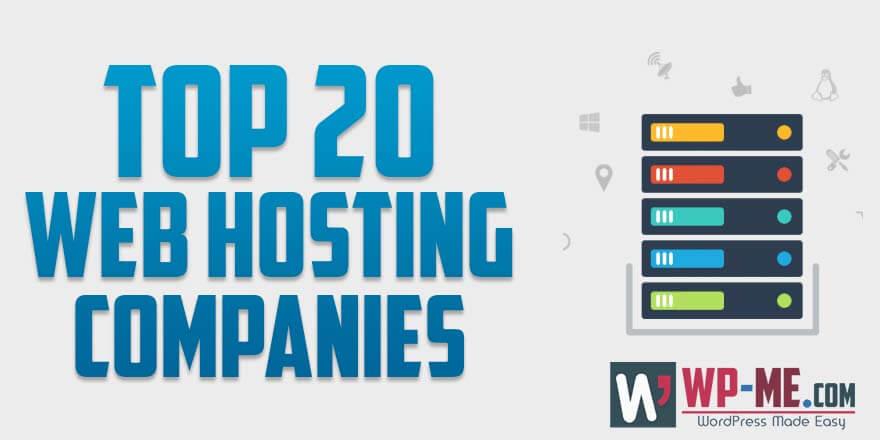
Evaluating Uptime and Speed of Top Hosting Providers
When it comes to choosing a hosting provider for your WordPress site, two of the most crucial factors to consider are uptime and speed. These elements can significantly impact your site’s performance, user experience, and even your search engine rankings.
Uptime refers to the percentage of time your website is operational and accessible to visitors. Ideally, you want a hosting provider that guarantees an uptime of 99.9% or higher. A reliable hosting service will ensure that your website is always available, minimizing the risk of lost visitors and revenue due to downtime.
Speed is equally important. A slow-loading website can frustrate users and lead to high bounce rates. Studies show that a one-second delay in page load time can lead to a significant drop in conversions. Therefore, it’s crucial to choose a host that prioritizes speed through optimized server performance and caching technologies.
Here’s a quick comparison of the uptime and speed metrics from some of the top hosting providers:
| Hosting Provider | Uptime Guarantee | Average Load Time |
|---|---|---|
| Bluehost | 99.9% | 400 ms |
| SiteGround | 99.99% | 300 ms |
| WP Engine | 99.95% | 350 ms |
| A2 Hosting | 99.9% | 200 ms |
When evaluating potential hosts, look for those that offer CDN (Content Delivery Network) integration, as this can further enhance your site’s speed by distributing content across various locations worldwide. Additionally, consider the hosting provider’s server locations; the closer their servers are to your target audience, the faster your site will load for them.
Another aspect to keep in mind is the overall customer support. A hosting provider that can quickly address any uptime or speed issues is invaluable. Look for companies that offer 24/7 support through multiple channels like chat, email, and phone.
the best hosting for your WordPress site will balance both uptime and speed while meeting your specific needs. Take the time to read reviews, test the service yourself via trial periods, and make an informed decision based on these critical metrics.

User Experience: The Ease of Use Factor in Hosting
When it comes to choosing the right hosting for your WordPress site, the ease of use can make all the difference. Whether you’re a seasoned developer or just starting out, a user-friendly hosting platform can simplify the technical aspects and let you focus on what truly matters—creating amazing content. Here’s why you should prioritize ease of use when evaluating your hosting options:
- Intuitive Control Panels: Look for hosting providers that offer intuitive dashboards. A well-designed control panel will allow you to manage your site settings, domain names, and databases with minimal hassle.
- One-Click Installations: Many top hosting services provide one-click installations for WordPress. This feature eliminates the need for complex setups and helps you get your site live in no time.
- Automatic Updates: Hosting solutions that handle automatic updates for your WordPress installation ensure that your site remains secure and performs optimally without requiring constant manual oversight.
- Reliable Customer Support: Choose a host with robust customer support available 24/7. Knowing that help is just a call or chat away can significantly enhance your experience, especially when you encounter issues.
Another critical aspect of user experience is the loading speed of your website. A fast-loading site contributes not only to user satisfaction but also to SEO rankings. Consider hosting providers that prioritize speed through features such as:
- CDN Integration: Content Delivery Networks (CDNs) can drastically improve loading times by serving your site from locations closer to your users.
- Optimized Server Configurations: Some hosts fine-tune their server settings specifically for WordPress, ensuring quicker response times and better performance.
- SSD Storage: Solid State Drives (SSDs) offer faster data access speeds compared to traditional hard drives.
To give you a clearer view, here’s a comparison of some popular hosting providers based on their ease of use features:
| Hosting Provider | Control Panel | One-Click Install | Automatic Updates | Support Availability |
|---|---|---|---|---|
| Bluehost | Custom cPanel | Yes | Yes | 24/7 |
| SiteGround | Custom Dashboard | Yes | Yes | 24/7 |
| WP Engine | Custom Dashboard | Yes | Yes | 24/7 |
| A2 Hosting | cPanel | Yes | Yes | 24/7 |
Ultimately, the best hosting for your WordPress site should not only meet your performance needs but also enhance your overall experience. A platform that prioritizes ease of use will allow you to spend less time managing technical issues and more time creating and engaging with your audience. So, take your time evaluating your options, and choose a host that feels right for you.

Transitioning to a New Host: Tips for a Smooth Migration
Transitioning to a new hosting provider can feel like a daunting task, but with the right approach, you can ensure a seamless migration. Here are some essential tips to help you navigate this process smoothly:
- Choose the Right Time: Timing is crucial. Pick a period of low traffic for your site, such as late at night or during weekends, to minimize disruptions. This helps prevent any potential loss of user engagement during the switch.
- Backup Everything: Before you make any changes, create a full backup of your website. This includes your database, themes, plugins, and media files. Many hosting providers offer backup solutions, or you can use plugins like UpdraftPlus or BackupBuddy.
- Check Compatibility: Ensure that your new host supports all the features your website currently uses. This includes PHP versions, database support, and any specific server configurations you might need.
- Test Before Going Live: Many hosts allow you to set up a staging environment. Use this to test your website’s functionality on the new host before making the switch. This step can save you from unexpected issues once your site goes live.
- Update DNS Settings: Once everything is set up on the new host, update your domain’s DNS settings to point to the new server. Propagation can take anywhere from a few minutes to 48 hours, so be prepared for some downtime.
- Monitor Performance: After the migration, keep a close eye on your site’s performance. Use tools like Google Analytics and website speed testers to ensure everything is running smoothly. Look out for any broken links or missing images that may have occurred during the transition.
- Communicate with Your Audience: If you anticipate any downtime, inform your audience in advance. A simple announcement on your website or social media can help manage expectations and maintain trust.
To help you visualize the potential downtime and performance of different hosts, consider the following comparison table:
| Hosting Provider | Average Uptime | Support Type | Migration Assistance |
|---|---|---|---|
| SiteGround | 99.99% | 24/7 Live Chat | Free Migration |
| Bluehost | 99.98% | Email & Phone | Paid Migration |
| WP Engine | 99.95% | 24/7 Live Chat | Free Migration |
| DreamHost | 99.95% | Live Chat & Email | Free Migration |
By following these tips and focusing on thorough preparation, you can make your transition to a new host as smooth as possible. Remember, a successful migration is not only about moving your site but also ensuring that it operates flawlessly in its new home.
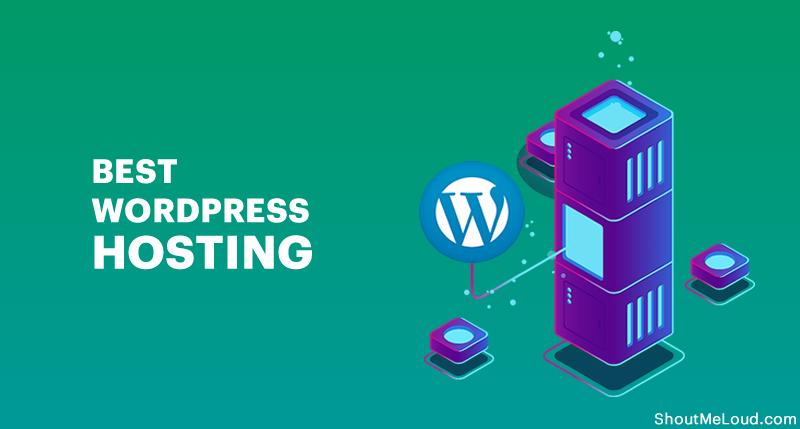
Final Thoughts: Finding the Best Hosting for Your Unique Needs
Choosing the right hosting for your WordPress site is more than just a technical decision; it’s about aligning your hosting service with your unique goals and needs. With an overwhelming array of options available, it’s essential to dig deeper than just the basic features and pricing. Consider what you envision for your website. Are you launching a personal blog, a bustling e-commerce site, or a portfolio to showcase your creative works? Each use case demands a tailored approach to hosting.
Before you make a decision, think about these key factors:
- Performance: Look for hosts that boast fast loading times and reliable uptime records. A slow site can deter visitors and harm your SEO.
- Customer Support: Ensure that the hosting provider offers robust support, ideally 24/7, through multiple channels like chat, email, and phone.
- Scalability: Choose a host that can grow with you. Whether you’re anticipating traffic spikes or planning to expand your site’s functionality, scalable options are crucial.
- Security: With cyber threats on the rise, a host that emphasizes security features—like SSL certificates, firewalls, and regular backups—should be high on your list.
When weighing your options, it might help to compare the top contenders side by side. Below is a simple table to give you a snapshot of popular hosting providers and their standout features:
| Hosting Provider | Best For | Key Features |
|---|---|---|
| SiteGround | Customer Support | 24/7 support, daily backups, free SSL |
| Bluehost | Beginners | User-friendly interface, one-click installs, affordable plans |
| WP Engine | High-traffic sites | Managed hosting, top-tier performance, built-in caching |
| InMotion Hosting | Business websites | Free domain, unlimited bandwidth, robust security |
Furthermore, remember to read user reviews and testimonials. These insights can provide a glimpse into the real-world performance of a hosting provider and help you gauge customer satisfaction. Look for reviews that highlight not only positive experiences but also how hosts handle issues or downtime.
Lastly, don’t overlook the importance of pricing. While it’s tempting to gravitate towards the cheapest options, consider the long-term value of your investment. Sometimes, paying a little more for superior performance and support can translate into a better return on investment through improved traffic and user satisfaction.
the best hosting for your WordPress site hinges on a careful evaluation of your specific needs. By taking the time to understand what you require and thoroughly researching your options, you can confidently select a hosting provider that will empower your online presence and help you achieve your goals.
Frequently Asked Questions (FAQ)
Q&A: What is the Best Hosting for WordPress: Top Options for Every Need
Q1: Why is choosing the right hosting important for my WordPress site?
A1: Great question! The right hosting can make or break your WordPress site. Think of it as the foundation of a house. A solid hosting provider ensures your site loads quickly, stays secure, and is always available to your visitors. If you choose poorly, you might deal with slow load times, frequent downtimes, and even security breaches. So, it’s essential to pick a host that aligns with your needs!
Q2: What should I consider when looking for WordPress hosting?
A2: There are several factors to consider! First, think about your budget. Some hosts are more affordable, while others offer premium features that may be worth the extra cost. Next, consider the technical support—do they offer 24/7 assistance? Speed and uptime are also critical; you want a host with a track record of reliability. Lastly, look into scalability—if your site grows, can your hosting grow with it?
Q3: I’m just starting out. Do I really need a premium hosting service?
A3: If you’re just starting, a shared hosting plan could be a perfect fit. It’s cost-effective, and many providers offer user-friendly setups that make launching your site a breeze. However, if you anticipate rapid growth or plan to run a high-traffic site, investing in a managed WordPress hosting service might save you headaches down the road.
Q4: What are some top hosting options for WordPress?
A4: There are several fantastic options! For beginners, Bluehost and SiteGround are often recommended for their ease of use and excellent customer service. If you want something more robust, consider WP Engine or Kinsta; they offer managed hosting with great performance and security features. For those on tighter budgets, A2 Hosting is a solid choice that balances affordability with speed.
Q5: How do I know if a hosting provider is reliable?
A5: Checking reviews and testimonials is a good start. Look for consistent feedback regarding uptime and customer service. You can also check their own website for uptime guarantees—many reputable hosts offer 99.9% uptime, which is a good benchmark. And if they have a money-back guarantee, that’s a positive sign—they’re confident in their service!
Q6: What if my site starts to grow? Can I upgrade my hosting?
A6: Absolutely! Most hosting providers offer a range of plans that allow you to upgrade as your needs change. Whether you’re moving from shared hosting to VPS or jumping to managed WordPress hosting, transitioning is typically straightforward. Just ensure your host has a clear upgrade path so you don’t experience any downtime during the switch.
Q7: What about security—how can my hosting protect my WordPress site?
A7: Security is crucial! Look for hosts that provide features like SSL certificates, daily backups, and malware scanning. Some managed WordPress hosts even offer automatic updates to ensure your site runs the latest version. A host with strong security measures can save you a lot of headaches and keep your site safe from potential threats.
Q8: Is it worth it to pay extra for managed WordPress hosting?
A8: If you’re serious about your website, yes! Managed WordPress hosting often includes optimized performance, automatic updates, enhanced security, and expert support tailored to WordPress. For those who may not have the technical skills or time to manage their site fully, the peace of mind it provides makes it a worthwhile investment.
Q9: Can I switch hosting providers later if I need to?
A9: Absolutely! While it may seem daunting, many people switch hosting providers as their needs change. Most hosts offer migration assistance, and you can usually transfer your domain easily. Just ensure you do your research and choose a reliable host from the start to minimize the need for a switch.
Q10: Any final tips on choosing the best WordPress hosting?
A10: Definitely! Take your time to evaluate your options and read user reviews. Don’t just go for the cheapest option—balance cost with features and support. And remember, your website is an investment in your brand or business, so choose a hosting provider that can help you succeed! Happy hosting!
Key Takeaways
choosing the right hosting for your WordPress site can make all the difference in your online success. Whether you’re a blogger, a small business owner, or an e-commerce entrepreneur, there’s a perfect hosting option out there tailored just for you. From lightning-fast speeds to top-notch security and excellent customer support, the best hosting providers we’ve discussed offer something for everyone.
So, take a moment to assess your needs, weigh your options, and don’t hesitate to invest a little more for the peace of mind that comes with reliable hosting. Remember, this is the foundation of your online presence, and it deserves careful consideration.
Ready to take the plunge? Dive into the world of WordPress hosting and watch your site thrive! You’ve got this, and we’re cheering you on every step of the way. Happy hosting!



